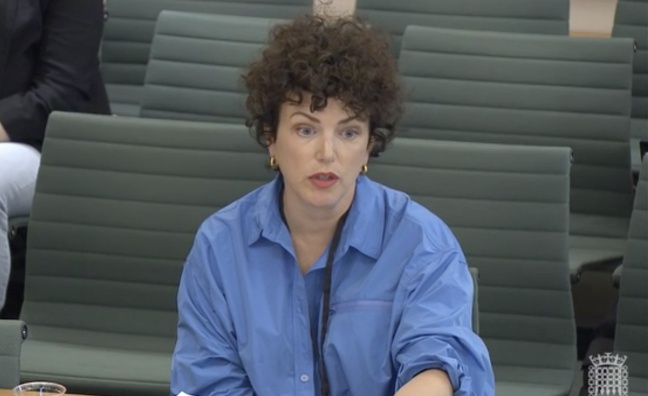Annie Mac and Rebecca Ferguson have given evidence to the Misogyny In Music inquiry.
It follows the appearance by major label execs at the Women and Equalities Committee’s inquiry in June, as part of its umbrella inquiry into preventing violence against women and girls.
Previous sessions in this inquiry took evidence from music festival organisers, music industry representatives, organisations that support women in music and academics.
The inquiry aims to uncover how attitudes can filter through to society, impacting attitudes towards and treatment of women and girls, including at live music events. MPs are exploring what steps can be taken to improve attitudes and treatment of women working in music.
Annie Macmanus, DJ, broadcaster and writer, was asked if the music industry needed to undergo the MeToo scrutiny that the film sector has received in recent years.
“There needs to be some sort of shift in women feeling like they're able to speak out without their careers being compromised,” she told MPs, referring to the music industry rather than the broadcast sector in which she has worked. “I don't know how that can happen. I feel like there are a lot of revelations that have not been exposed. It's infuriating the amount of women who just have stories of sexual assault, they just had to bury them and carry them, it's just unbelievable. So I do think if something were to happen, if one person were to speak that had enough profile where it got media attention, there could be a kind of tidal wave of it. Definitely.”
Rebecca Ferguson, a former X Factor contestant, has been vocal about her experience as a woman in the music industry. She has supplied written evidence to the inquiry.
Ferguson has called for a parliamentary inquiry into the way the music industry operates in the hope of “protecting artists” in the future. She met with former Culture Secretary Nadine Dorries to discuss her concerns.
There needs to be some sort of shift in women feeling like they're able to speak out without their careers being compromised
Annie Mac
Speaking to MPs today via video link, Rebecca Ferguson said the government has made progress on the issue of safeguarding.
“I would say so, yes,” she said. “I do think that the roundtable meetings that were set up did definitely improve the industry. I know that a lot of the labels, like Sony, for instance, set up things for people that were struggling with maybe mental health issues or people that were just genuinely struggling in the industry. They could go to somebody independently and Sony were paying for for them to receive help.
“So I do think it pushed the industry to do better. I don't know if it’s enough though. I know that CIISA [Creative Industries Independent Standards Authority] has been set up, and I was really vocal and tried to push that through and that’s going ahead, which is amazing. But I do think that there should be somebody, maybe from the [Department for Culture, Media & Sport] or someone from the government, that sits on top of that maybe a bit like Ofcom. I feel like it should be governed by government, because a lot of the funding for these regulators comes from the industry and it worries me about the amount of power that the industry has. So I think CIISA’s amazing, and I back that 100%, but I do think we should add one other layer of protection for that.”

Speaking to the committee in July, Sir John Whittingdale MP, Minister of State for Media, Tourism and Creative Industries, said: "I remember the meeting that took place with Rebecca Ferguson. Ministers were quite concerned to hear of her experience and clearly recognised that the industry needed to do more. Following that, there was the establishment of a working group, looking particularly at bullying, harassment and discrimination, which was headed by Creative UK. Out of that came the Creative Industries Independent Standards Authority, which is an industry body, but one that that the government very strongly support, to look at ways in which we can make more assistance available to women, particularly, but not exclusively women, working in the industry who suffer from BHD [bullying, harassment and discrimination]. We are delighted that the CIISA is now at the point where it has been agreed by the industry and is about to launch."
Addressing bullying and harassment in music, he said: “You are dealing with an industry, like a number of the creative industries, where there are quite a lot of powerful men who have exploited and abused their position. You are dealing with quite young and inexperienced women who are also ambitious and somehow brainwashed into believing that they have to accept this as part of their career path.”
While noting the formation of CIISA alongside existing legislation, Whittingdale said the industry needs to lead in terms of addressing the concerns of how women have been treated.
“It is, in the main, going to be the responsibility of the industry,” he said. “The government have provided support to the industry in creating these additional avenues for people suffering from BHD to seek help… It is for the industry to step up and I think that they are doing that.”









